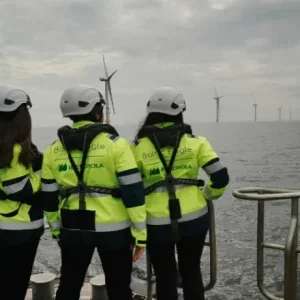The agreement represents the first electricity link between the two countries.
The companies will now begin feasibility studies on both the technical and economic aspects of the project, so as to explore possible routes and landing sites, budgets and permitting before October 2014.
National Grid executive director Nick Winser said closer integration of the markets can bring benefits to the UK in helping to balance its network.
"However much needs to be done to secure a regulatory framework that will make the interconnector a commercially feasible project," Winser added.
Energinet.dk CEO Peder Andreasen said, "A UK-DK cable can make an important contribution towards stronger security of supply and a more interconnected electricity market in Northern Europe."
The significant economic benefits expected to brought by the interconnector to the two countries include assistance to maximize the potential of both offshore and onshore wind, add to security of supply and enable a competitive market.
With three operational cable interconnectors with Ireland, France and the Netherlands, the UK is currently exploring connections with Norway, Belgium and Iceland, while increasing capacity with France and Ireland.
Denmark has interconnectors with Norway, Sweden and Germany, and is also building new interconnectors to Norway and Germany, and is investigating the possibility of establishing an interconnection between Denmark and the Netherlands.






